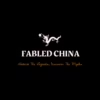Gonggong (共工), the water god in ancient Chinese mythology, was a descendant of the Yan Emperor (炎帝). He was considered one of the key figures in the development of agriculture, particularly in water management. Gonggong and his son, Houtu (后土), were experts in irrigation and were dedicated to improving agricultural productivity by controlling water. After assessing the land conditions of their tribe, Gonggong noticed that some areas were too high, making irrigation difficult, while others were too low and prone to flooding. To solve this problem, Gonggong developed a method of dam-building to store water. His approach was to move soil from higher ground to lower areas, leveling the land to improve irrigation and expand farmland, which he believed would benefit agricultural production.
However, Gonggong’s methods clashed with those of Zhuanxu (颛顼), the ruler and the Heavenly Emperor (天帝). Zhuanxu, the great-grandson of the Yellow Emperor (黄帝), held a strong belief that the entire tribe should obey his command, and even Gonggong could not act independently. He argued that Gonggong’s damming methods would anger the heavens, and thus opposed his plans. This disagreement soon evolved into a fierce battle not only over water management but also over tribal leadership, making it a continuation of the long-standing feud between the descendants of the Yellow Emperor and Yan Emperor, known as the battle of the “Flame and Yellow” (炎黄之战).
Zhuanxu, once in control of the heavenly realms, paid little attention to the suffering of his people and used his power to suppress other factions of the gods, leading to widespread discontent both in Heaven and Earth. Seeing this, Gonggong was pleased and rallied other disgruntled gods to revolt against Zhuanxu’s rule. The rebellious gods elected Gonggong as their leader, formed an army, and launched a surprise attack on the capital of Heaven.
Upon hearing of the rebellion, Zhuanxu remained unfazed. He signaled for reinforcements from the surrounding regions and mobilized his own army to defend the capital. The two sides fought fiercely, with battles shifting between Heaven and Earth. Zhuanxu’s forces gradually gained the upper hand, and Gonggong’s followers were increasingly overwhelmed. Legendary figures such as Taifeng (泰逢), a divine general with the body of a tiger and a human tail, and Ji Meng (计蒙), a dragon-headed general who summoned fierce winds and storms, joined the fight. Gonggong’s army dwindled, leaving behind a field of fallen soldiers.
In earlier stories, Gonggong was said to have been defeated by Zhu Rong (祝融), the fire god, and in a fit of rage, he crashed into Mount Buzhou (不周山), a mythical mountain that supported the heavens. Whether this act happened during the war with Zhuanxu is uncertain, as different versions of the myth exist. However, it is often said that Gonggong, in his final act of defiance, struck the mountain once again during this conflict.
As the battle reached its climax, Gonggong and his few remaining followers made their way to the northwest, where Mount Buzhou stood. This mountain was the cosmic pillar that supported the heavens and maintained the structure of the universe. With the forces of Heaven closing in, Gonggong, in a final act of desperation, charged at the mountain in an attempt to destroy it. With a deafening crash, he succeeded in breaking the mountain in half.
The breaking of Mount Buzhou had catastrophic consequences for the universe. The heavens tilted, causing the sun, moon, and stars—once fixed in place—to slide along their new slanted paths. This explained the shifting of the celestial bodies into the positions we see today. Furthermore, the impact caused the southeastern corner of the Earth to collapse, resulting in the uneven topography we know, with the northwest higher than the southeast. This event also shifted the course of rivers and seas, sending them flowing eastward toward the ocean.
Although Gonggong’s actions were ultimately defeated and he did not gain the support of the people, his belief in the correctness of his cause never wavered. He sacrificed his life for what he believed to be the betterment of the world, and despite his failure, he gained respect for his perseverance. After his death, Gonggong was venerated as the god of water (水师), and his son, Houtu, was honored as the god of the land and earth (社神).
This myth reflects the ongoing struggle for power between the divine figures in Chinese mythology and highlights the constant tension between personal ambition, authority, and the needs of the people. Despite the eventual victory of Zhuanxu, Gonggong’s legacy lived on, symbolizing the fierce determination to protect one’s beliefs and the consequential, far-reaching effects of his actions.
